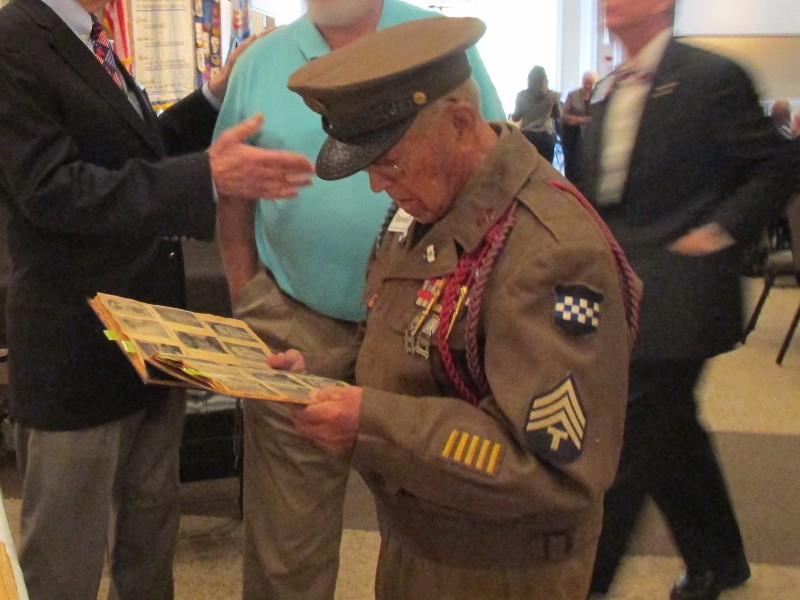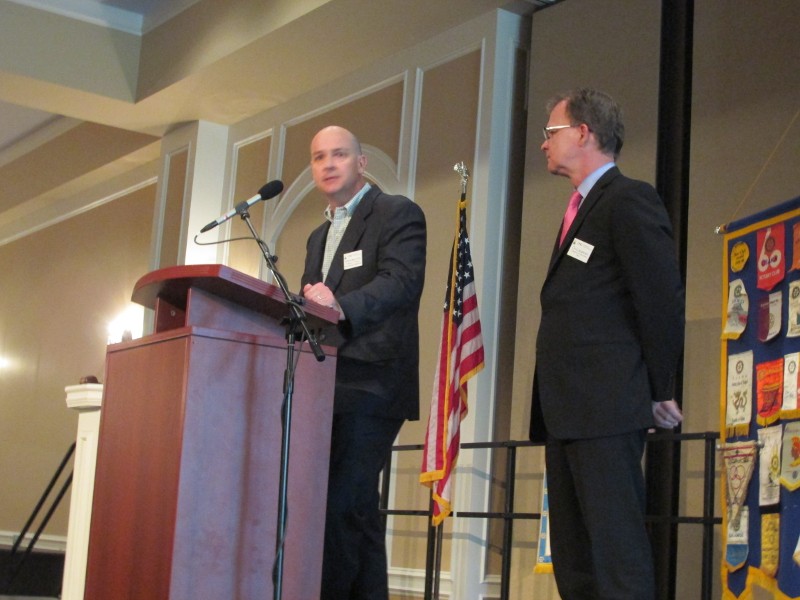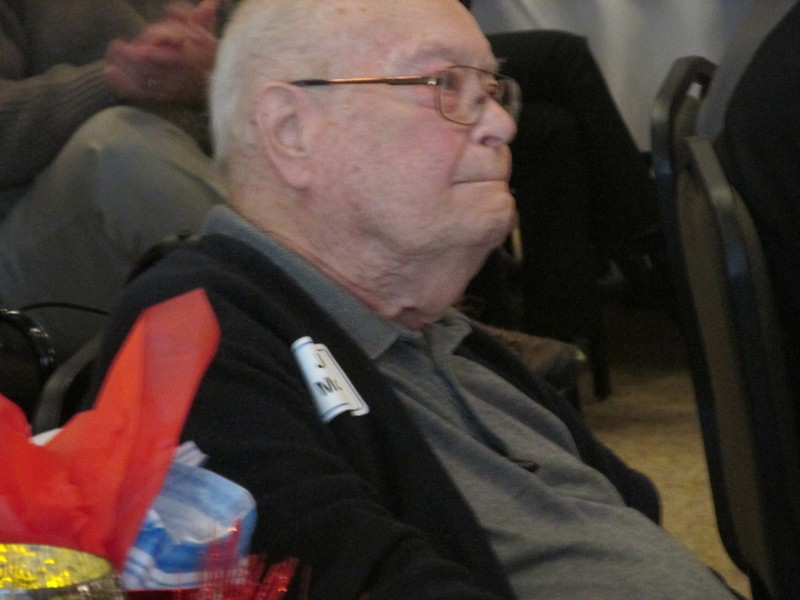GAINESVILLE – The Gainesville Rotary Club extended the Veterans Day weekend one additional day when it feted fourteen local World War II veterans at a gala luncheon, part of a tribute honoring all the men and woman of the United States Armed Forces.
The crowded ballroom at First Baptist Church on Green Street was introduced to the fourteen area men, one of whom came attired in his original U.S. Army uniform: Cecil Boswell.
Also recognized were: Lawrence Freeman, Dr. Billy Hardman, Charles Lindsey, Jerry Moeller, Ed Nivens, Rhule Patterson, Jack Prince, brothers Hal and Horace Smallwood, Amos Lee Stover, Joe T. Wood, Henry Woodliff and Vaughn Woodring.
Chosen as guest speakers for the event were two local experts on World War II: Dr. Richard Byers, Professor of History at the University of North Georgia, and Dr. Chris Jesperson, Dean of the College of Arts and Letters at UNG.
Byers spoke about the war effort in Europe.
“The one thing that strikes me whenever I do research in this field is just how tough this fight was,” Byers began.
“The U.S. Army fought a determined and tough enemy on every front and in every theater…and we came through these adversities and challenges with flying colors,” Byers said.
“By the end of the war in May of 1945 the United States Army in Europe was arguably the toughest military machine ever constructed in all of world history,” Byers added.
Jesperson focused on the war in the Pacific.
“The first thing is that the Japanese attack on Pearl Harbor on December 7, 1941, did not determine the fact that the United States was going to enter the war – it determined ‘when’ the United States was going to enter the war,” Jesperson said.
“The second point is the war in the Pacific was different from Europe: race played a role,” Jesperson said. “The Japanese leadership…believed that if a significant blow was struck against the American Navy that the American people were too happy, too large and too lazy, that they would not fight to regain territory lost in the Pacific.”
“The Japanese leadership made a serious mistake,” Jesperson said before developing several other characteristics that made the war in the Pacific unique.
While neither Byers nor Jesperson lived during the years of the Second World War, they were delighted to hear comments from the fourteen veterans in the audience.
At one point, following a comment from former Navy Captain Jerry Moeller about the dealings of General Douglas MacArthur in the Philippines, Jesperson said, “What are you doing next semester? Why don’t you come and talk to the World War II class? This is stuff that the students need to hear.”
“This is why I love having older students in my classes,” Jesperson said with glee, “because I can talk to them about these things. Those 20-year-olds don’t know anything; they haven’t experienced anything!”
While the audience laughed in agreement, everyone present knew that the number of living World War II veterans was rapidly shrinking and that opportunities to honor them, such as Monday’s tribute, and listen to their stories should never be wasted.











